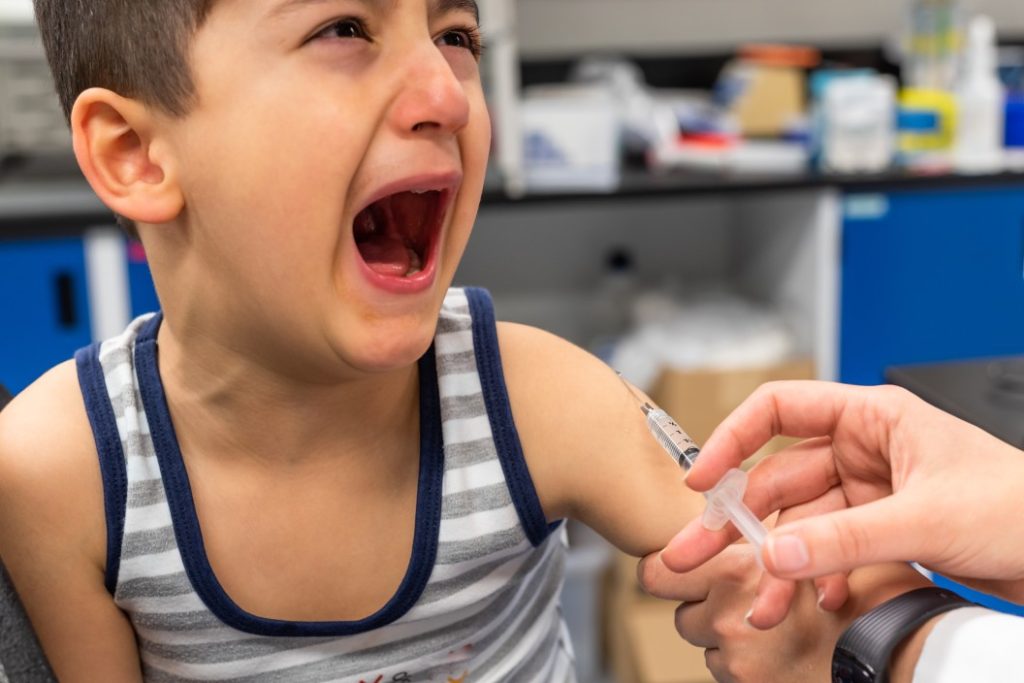Fear of needles puts many people off getting their shots, including against Covid.
Medical researchers are developing what can perhaps best be described as a needle pill. Once swallowed it makes its way to the stomach lining and uses an internal needle to inject the person – painlessly - from the inside. While this scenario might sound rather nightmarish to some (*raises hand*), creating a workable alternative to the usual, externally-jabbing way of doing injections could be incredibly valuable. The reason? Trypanophobia. (That’s the technical term for being scared of needles.)
There are a few things about trypanophobia that combine to make it a particular, ahem, thorn in the side of societies. The first is that it’s super common. The NHS reckons one in ten people have it, while the American Centers for Disease Control and Prevention thinks it’s more like one in four. Either way, that adds up to millions and millions of people. The second thing is that it causes significant mental and physical distress to those folks when they get up close and personal with a needle: some faint or have panic attacks. And the third thing is that avoiding needles is neither possible nor desirable.
Needles are how medical professionals do a host of important, life-saving things, from drawing blood to check for diseases to administering vaccinations. The average healthy person will (sorry, trypanophobes) require about 165 needle injections in their lifetime. And that’s with an emphasis on healthy. If you’re ever hospitalised or require medical testing, that means a bunch more needles. Similarly, there are lots of chronic illnesses that require frequent interaction with them. Diabetes, which affects 1 in every 16 Brits, is one such example. And this isn’t even touching on needle-based activities which aren’t necessary but are used for things that can give people joy: tattoos, acupuncture, cosmetic procedures, and so on.
Ultimately, having a large group of people who are so scared of visible needles that they will go out of their way to avoid getting jabbed is bad both for the individuals and their communities. One illustration of this is the Covid-19 vaccine, which the needle pill has been specifically developed to administer. Non-vaxxed individuals are more likely to get seriously ill or die from coronavirus. Obviously that’s not good for them or for those who love and care for them. It’s also not good for society at large: it translates to more medical resources being used up, more paid and unpaid work being left undone, and sometimes more Covid restrictions being put on everyone.
So lots of people are keen to get as many people vaccinated as possible. One way to do this could be to find ways to mitigate trypanophobia: a US-based study found that 52 percent of unvaccinated respondents were scared of needles. Making this issue more important is the growing consensus that Covid vaccines are only effective if given regularly; we already suspect that trypanophobia leads to steep drop offs in other vaccines that have multiple courses. There’s a bunch of things that could help, including dropping overt images of or references to needles in get-jabbed ads and training vaccinators on how to deal with someone freaking out about it. But if the oral alternatives being developed work, they may end up being the best long-term solution to this problem.
Read our explainer on: how people think

